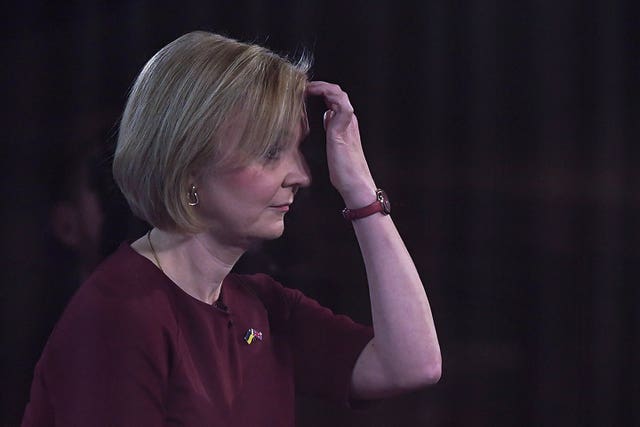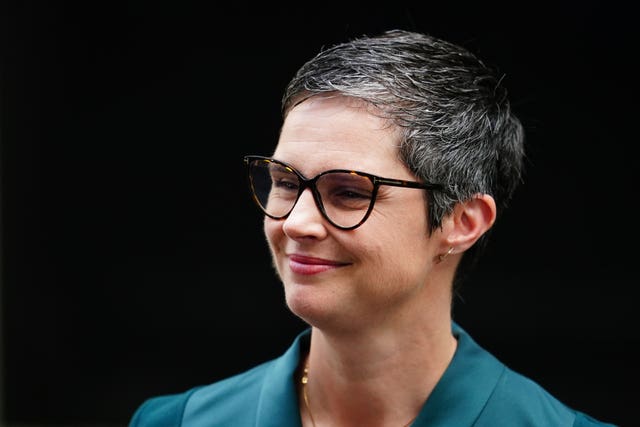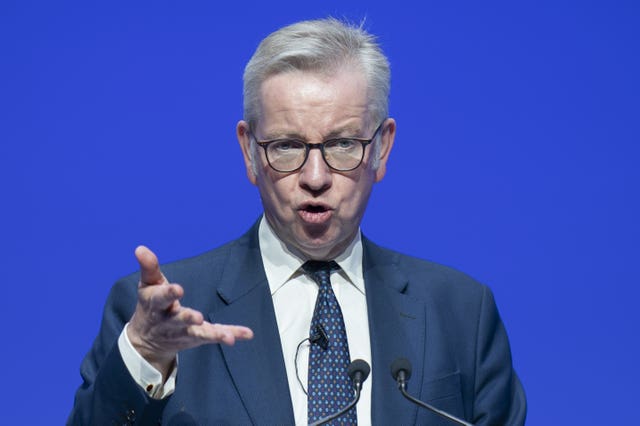
James O'Brien 10am - 1pm
2 October 2022, 13:04 | Updated: 7 October 2022, 13:40

The Prime Minister said she had not laid the ground properly for the plan.
Liz Truss has acknowledged mistakes over the mini-budget but said she is standing by her tax-cutting plan as she refused to rule out public spending cuts.
The Prime Minister admitted she could have done more to prepare the ground for Kwasi Kwarteng’s financial statement, which spooked the markets, sending the pound plummeting and forcing a £65 billion intervention by the Bank of England to restore order.
Ms Truss was accused of throwing her Chancellor “under the bus” by saying the mini-budget’s most controversial measure – the abolition of the 45% tax rate on earnings over £150,000 – was not discussed with the Cabinet but was a decision made by Mr Kwarteng.
Conservative former Cabinet minister Michael Gove gave a scathing assessment of the plans, branding them un-Conservative and hinting he could vote against them in Parliament.
Ms Truss’s defence of her £45 billion of tax cuts to be paid for by borrowing came at the start of the Conservative Party conference in Birmingham where she faces the challenge of reassuring the markets and Tory members unnerved by the market turbulence and an opinion poll crash.
“I do want to say to people I understand their worries about what has happened this week,” she told the BBC’s Sunday With Laura Kuenssberg.
“I do stand by the package we announced and I stand by the fact we announced it quickly, because we had to act.
“But I do accept we should have laid the ground better… I have learnt from that and I will make sure that in future we do a better job of laying the ground.”
The move to axe the top rate of income tax for the nation’s highest earners during a cost-of-living crisis and to pay for it through borrowing has been widely criticised, including by some Tory MPs.
Ms Truss made Mr Kwarteng own the controversial decision, saying it was not discussed with the wider Cabinet.

“No, no, we didn’t. It was a decision the Chancellor made,” she said.
Former culture secretary Nadine Dorries said Ms Truss was failing to be loyal by “throwing your Chancellor under a bus on the first day of conference”.
Ms Truss was clear that pensions will rise in line with inflation, saying she has “committed to the triple lock” protecting them against price increases.
But she refused to give the same guarantee for benefits and government departmental budgets, raising the prospect of real-terms cuts.
Not ruling out rowing back on Boris Johnson’s promise to raise benefit payments in line with inflation, she said Work and Pensions Secretary Chloe Smith will “make a determination on that and we will announce that this autumn”.
The Prime Minister repeatedly refused to rule out cuts to public services, saying she would not pre-empt Mr Kwarteng’s medium-term fiscal plan in November.
“What I’m going to do is make sure we get value for money for the taxpayer. But I’m very, very committed to making sure we’ve got excellent frontline public services,” she said.

Some of her own MPs fear rising interest rates and more taxpayers’ cash being eaten up will lead to spending cuts.
But Ms Truss said: “I don’t accept that argument and I will do what I can to win the hearts and minds of my colleagues across the Conservative Party because I believe we need to grow the size of the pie.”
Ms Truss defended the dramatic break with past Conservative policy on stewardship of the public finances despite not having her own mandate at a general election.
She said people had voted for a “different future” in 2019, with hopes for investment in towns and cities, higher wages and economic growth.
“I’m not saying it’s not going to be difficult – we do face a very turbulent and stormy time – but it will deliver, it will deliver on the promises we made,” she said.
Mr Gove, a veteran of government who remains influential among Tories, was scathing about the plan, claiming the abolition of the 45p tax rate and lifting caps on bankers’ bonuses at a time when people are facing hardship displays “the wrong values”.
Pressed on whether he will vote for the package in the Commons, he said: “I don’t believe it’s right.”
Another opinion poll illustrated the scale of the challenge facing Ms Truss to assert her authority over the party she only assumed leadership of in September.
The survey by Opinium put Labour on 46%, 19 points clear of the Conservatives on 27%. On the issue of the economy it found that a one-point lead for the Tories a week ago had become a 19-point advantage for Labour.
I understand how worried people are feeling and the difficult times we face.
That’s why we have acted urgently to support people with their energy bills and put the UK on a path to higher growth. #CPC22 pic.twitter.com/b3rBhzotcS
— Liz Truss (@trussliz) October 2, 2022
Writing in The Daily Telegraph, Labour leader Sir Keir Starmer said it is “unacceptable” that neither the country nor Parliament has had any say on the measures despite the chaos wreaked on the financial markets.
“The economy is not a laboratory experiment for the maddest scientists of the Conservative Party. Mortgages, pensions and family finances are not casino chips for a Government intoxicated by dogma,” he said.
“There are many decent Conservative MPs who know this. My message to them is that Labour will work with anyone to ensure some semblance of economic sanity is restored.”

Tory Party chairman Jake Berry said there will be a “drive to trim fat in terms of government expenditure”.
“I don’t think it’s unreasonable to say that the public sector should look at its expenses in the same way that every single household is doing in this country”, he told Sky News.
Meanwhile, the Tories announced plans to reduce regulations for businesses with fewer than 500 employees as part of the strategy to boost growth.